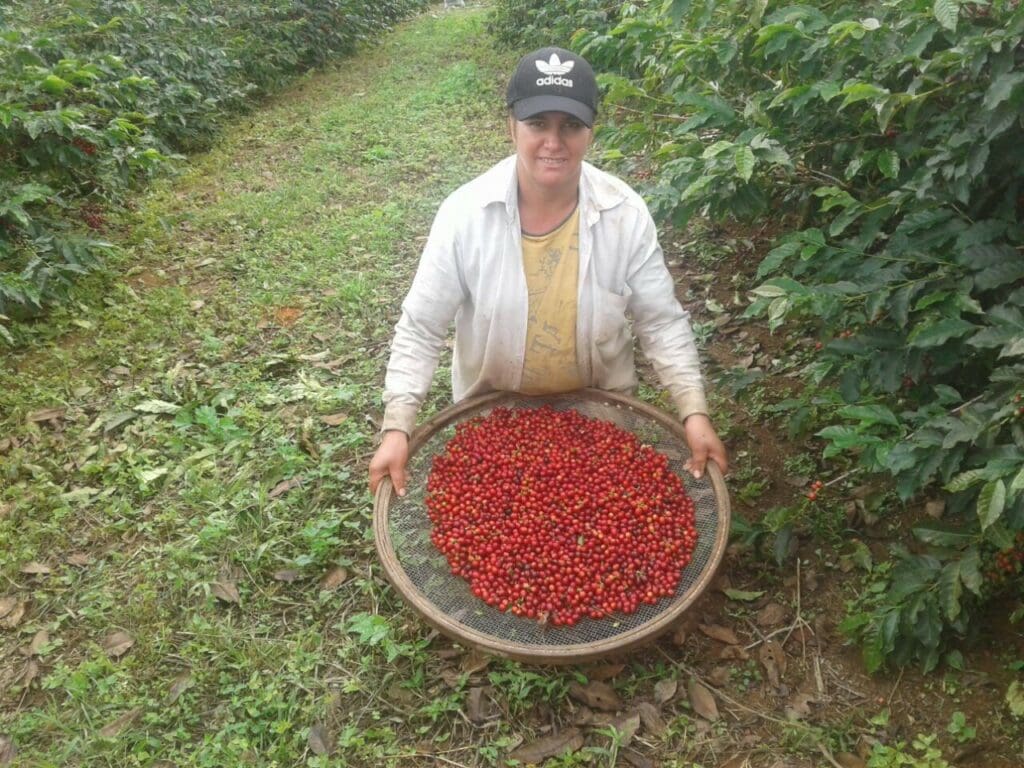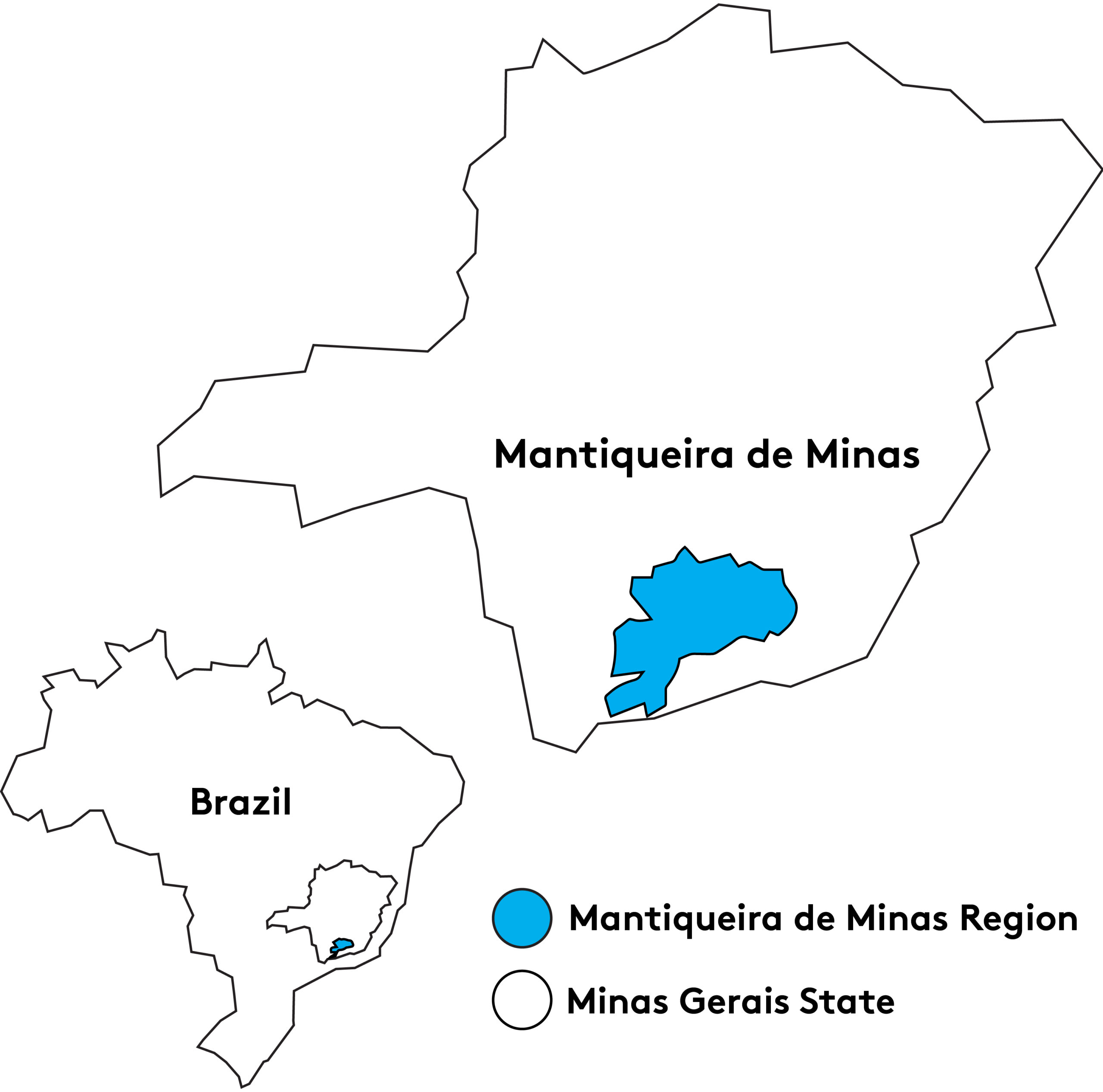Sítio Nossa Senhora Da Aparecida is found in the Campo Grande community of the city of Campanha, Minas Gerais, Brazil. Here, Marcia de Jesus Souza Borges produces coffee on 6.5 hectares of land with her husband, Maurílio Brás Borges. The couple began the work of coffee cultivation together, eventually joined by their children Andressa and Bruno. Andressa now owns her own small property where she cultivates coffee, and Bruno plans to follow the path of his parents and older sister.
Marcia finds challenges in a volatile climate and the expense of coffee cultivation, but the family shares a goal of producing high quality coffee which motivates them to continue their work with dedication. They work diligently to minimize chemical inputs on the farm, to actively manage overgrowth, and to pick coffee using selective harvesting. The family has earned Fairtrade certification for the farm, which has helped support their efforts further.
Marcia and her family grow Red Catuai, Yellow Catuai, and Mundo Novo on Sítio Nossa Senhora Da Aparecida, producing 230 bags of coffee annually. They also utilize both Washed and Natural processing for lots of coffee, which is uncommon for the region. This particular lot of Yellow Catuai underwent Natural processing. Catuai was developed by the Instituto Agronomico (IAC) of Sao Paulo State in Campinas, Brazil by crossing Mundo Novo and Caturra varieties. Catuai coffees are cultivated widely across Brazil, and are known for their high productivity potential.
This coffee was one of the top 10 entries in a competition held by AMECAFÉ Mantiqueira (The Association of Coffee Women Entrepreneurs in Serra da Mantiqueira) in October 2020. The association was founded in 2017 and now includes 130 producers, providing professional development and other events for women producers in the region.


